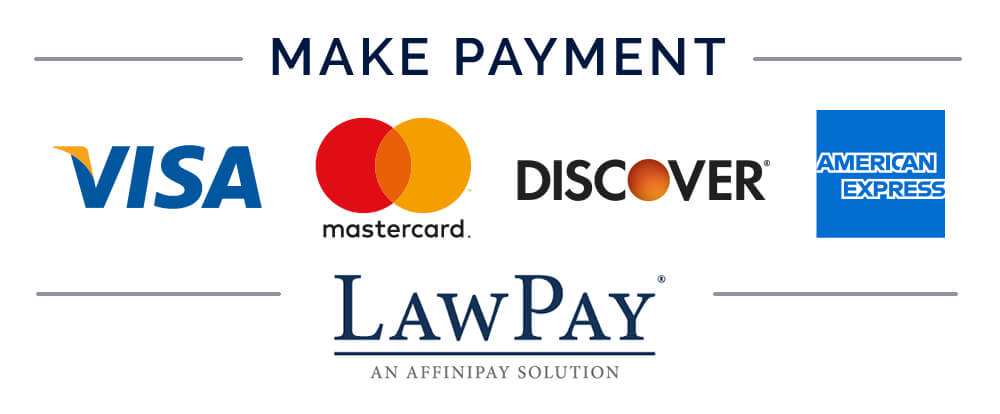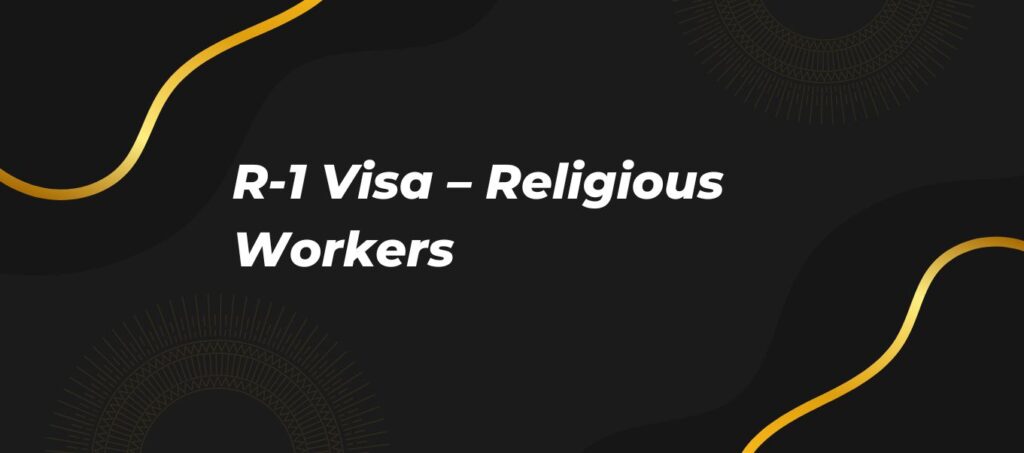If you’re a minister, missionary, or someone working in a religious capacity and you’ve been invited to serve by a U.S. non-profit religious organization, the R-1 visa may be the right path for you. It allows religious workers to live and work in the U.S. temporarily, with the potential to apply for a green card later. In this guide, we’ll walk you through everything you need to know—from eligibility to application steps to long-term planning.
Who Is Eligible for the R-1 Visa?
To qualify for an R-1 visa, both the applicant and the sponsoring organization must meet specific criteria.
The organization must be a bona fide, non-profit religious entity that is tax-exempt under section 501(c)(3) of the Internal Revenue Code. It must either be part of a recognized religious denomination or affiliated with one in a meaningful way. A local church, mosque, synagogue, temple, or religious school are typical examples.
The applicant must have been a member of the same religious denomination for at least two years immediately prior to applying. You must also plan to work at least 20 hours per week in a religious occupation or vocation. This could include positions like pastors, priests, imams, monks, rabbis, missionaries, or other faith-based workers who perform religious functions.
Qualifying Positions Under the R-1 Visa
The role must be directly related to carrying out the beliefs and practices of the religion. Some qualifying examples include:
- Ministers or clergy authorized to conduct worship
- Missionaries or church planters
- Religious instructors or counselors
- Nuns, monks, or members of religious orders
- Worship leaders or musicians in a religious setting
- Chaplains serving in hospitals, schools, or prisons
Purely administrative roles like finance officers, janitors, or fundraising coordinators do not qualify unless their duties are minor and incidental to a religious function.
The Application Process
The application for the R-1 visa involves several key steps and requires active participation from both the religious organization and the applicant.
First, the sponsoring organization must file Form I-129, Petition for a Nonimmigrant Worker, with the R-1 Classification Supplement. This form demonstrates that the organization is eligible and that the role offered meets the criteria for religious work.
With the petition, the organization must include supporting documentation like:
- IRS determination letter proving tax-exempt status
- A detailed description of the religious job being offered
- Proof that the applicant has been a member of the denomination for at least two years
- Ordination certificates or religious credentials
- Organizational bylaws or governing documents
- A statement of how the applicant will be compensated
USCIS may conduct an on-site inspection of the sponsoring organization to verify operations, authenticity, and location. This is a standard part of the vetting process, especially for first-time petitioners.
Once Form I-129 is approved, the applicant will receive Form I-797 (Notice of Action), which can be used to apply for the actual visa if they’re outside the U.S., or to adjust status if they’re already lawfully present in the country.
Applicants abroad will then file Form DS-160, attend a U.S. consulate interview, and present supporting documents, including the approved I-797, passport, and confirmation of employment. Canadian citizens are exempt from the visa requirement but must still present the approved petition when entering the U.S.
Duration and Extension of Stay
An R-1 visa is initially granted for up to 30 months (2.5 years). It can be extended for another 30 months, giving a maximum stay of five years in total.
It’s important to keep track of time spent inside and outside the U.S. If you travel abroad frequently for religious missions, you may be eligible to “recapture” that time and extend your stay beyond the typical five-year limit. Accurate documentation is essential.
After completing five years, you must leave the U.S. for at least 12 months before applying for a new R-1 visa—unless you spent significant time outside the country during your previous stay.
Can My Family Come With Me?
Yes. Your spouse and unmarried children under 21 years old can apply for R-2 visas as dependents. While they can attend school in the U.S., they are not allowed to work under R-2 status.
It’s important to plan ahead if your child is close to turning 21, as they’ll no longer qualify under your visa after that point.
Challenges and Considerations
While the R-1 visa offers a powerful route for religious workers to live and serve in the U.S., it comes with its share of limitations.
Only religious work qualifies. You must show that your role is central to the faith’s religious practices. If the work is mostly administrative or secular, the petition is likely to be denied.
You cannot self-petition. The visa process must be initiated by a recognized religious organization. You cannot file as an independent minister or missionary without a sponsoring body.
There is a five-year limit. Once you reach the five-year cap, your options become more limited unless you’ve spent significant time abroad that can be recaptured.
Dual intent is not allowed. This means that when you apply for an R-1 visa, you must intend to return home after your stay. This can complicate matters if you hope to apply for a green card later—but there are workarounds.
USCIS scrutiny is high. Expect a detailed review of all documents. Site visits, interviews, and requests for evidence are common. Working with an experienced immigration attorney can significantly reduce your risk of delays or denial.
Pathway to a Green Card
While the R-1 visa is nonimmigrant and doesn’t offer a direct path to permanent residency, many religious workers do go on to obtain a green card. The most common route is the EB-4 Special Immigrant Religious Worker category.
To qualify for an EB-4, you must:
- Have worked in the U.S. for at least two years in a full-time, religious position
- Be sponsored by a non-profit religious organization
- Provide extensive documentation of your role, experience, and compensation
Once the I-360 immigrant petition is approved, you can apply for a green card through either Adjustment of Status (if you’re in the U.S.) or Consular Processing (if you’re abroad). Your family can also apply for green cards as your dependents.
However, the EB-4 category has been severely backlogged in recent years. The 2023 inclusion of unaccompanied minors in the same visa category caused delays for religious workers, with some facing wait times of 10+ years. That means some R-1 holders may need to leave the U.S. before their green card becomes available.
Real Story: Sister Elena’s Journey
Sister Elena, a Catholic nun from the Philippines, had served her community for decades. In 2019, a Catholic school in California invited her to teach theology and lead spiritual retreats. She applied for an R-1 visa, and her religious order sponsored her petition.
With the help of legal counsel, they submitted a detailed application, including her ordination documents, mission statement, and job description. USCIS conducted a site visit and approved the petition.
Sister Elena entered the U.S., taught for two years, and applied for an extension. Meanwhile, her religious order filed an EB-4 green card petition. Although it was approved, the wait time for a visa number pushed her green card timeline beyond her five-year limit. She chose to return to the Philippines for one year, and plans to re-enter once her priority date is current.
Her story is not uncommon—many religious workers must strategically plan both their service and long-term immigration goals.
Helpful Tips for a Smooth Application
- Keep thorough records of your religious experience, membership, and education
- Document any time spent outside the U.S. to preserve future eligibility
- Plan early if you intend to transition to a green card, as wait times can be long
- Work with experienced immigration counsel, especially for site visits or complex documentation
- Communicate regularly with your sponsoring organization to stay updated on deadlines
Is the R-1 Visa Right for You?
If you’re committed to serving in a religious role and have the support of a recognized U.S. religious institution, the R-1 visa offers a meaningful way to live out your vocation in the United States. It’s a pathway that requires preparation, patience, and precision—but for thousands of missionaries, pastors, and spiritual workers, it has opened doors to lifelong ministry and community impact.
Ready to explore your options? Reach out today for step-by-step legal support that respects your calling and strengthens your petition.



